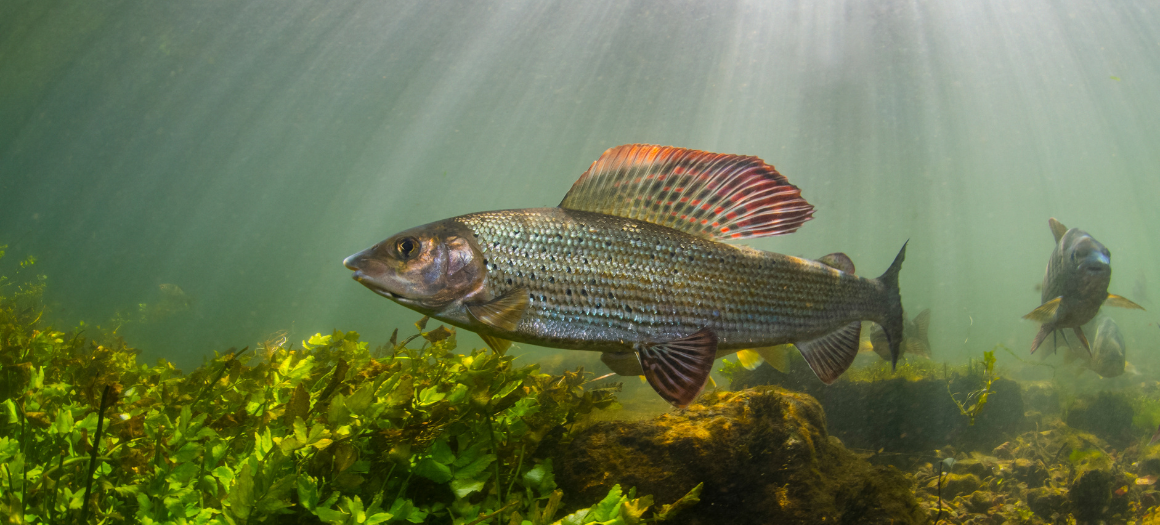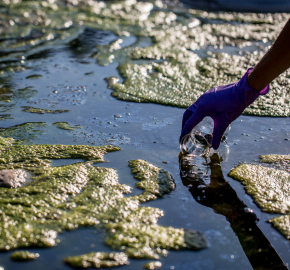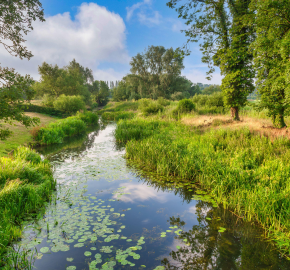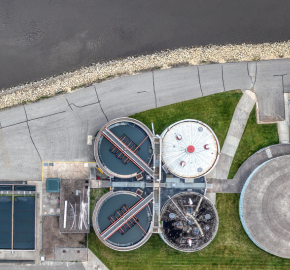Yorkshire anglers win key legal battle and set a precedent for restoring England’s rivers and streams

Anglers and river-watchers are celebrating after Fish Legal (which represented the Pickering Fishery Association) won a key legal battle at the Court of Appeal against abject failures by the Environment Agency and Defra to set out details for fixing English rivers and streams. [1]
As we explained in a previous posting, the local anglers have been fighting to save the Costa Beck in North Yorkshire, a trout stream plagued by sewage and fish farm pollution. Despite a long battle with the government and Defra, they have secured a great victory – not just for their local river – but also for the rivers of England.
The background
Fish Legal and Pickering Fishery Association won the first round of their case (Pickering Fishery Association v Secretary of State for the Environment, Food and Rural Affairs and Environment Agency [2023] EWHC 2918 (Admin)) last year.
That spectacular result meant that the Environment Agency would need to start complying with its obligations and properly detail the actions needed to stop pollution in all waterbodies.
In their case in 2023, the Pickering anglers argued that the Secretary of State’s approval of the updated Humber River Basin Management Plan (“HRBMP”) under the Water Framework Directive) England and Wales Regulations 2017 was unlawful because it just contained high-level, generic and practically useless commentary instead of waterbody-specific detail.
The HRBMP, they argued, is supposed to set out the pressures on waterbodies within the river basin and a programme of measures (“PoM”) for achieving good ecological status (or where the waterbody has been heavily modified, Good Ecological Potential ).
Such a PoM should include actions to prevent pollution such as reviewing and eventually tightening up permit conditions for point source pollution, including from sewage discharges.
The Defendants argued that a PoM didn’t need to be specific as it relates to a river basin district, as opposed to the “environmental objectives” for waterbodies and river basins.
Mrs Justice Lieven agreed with the anglers that the HRBMP document was “generic” and an exercise in “smoke and mirrors” whereas it should have been waterbody-specific. She also found that there were defects in the consultation process.
The appeal
Despite the heavy criticism and the general public dismay at all-round failures to protect rivers and streams, the last government appealed the ruling, and the present government continued despite growing public condemnation of regulatory incompetence.
The appeal centred on the key point set out succinctly by Mrs Justice Leiven:
“. . .whether, and to what degree, the HRBMP or any other documents produced by the EA pursuant to the WFDR 2017 must set out information at the level of the individual water body, as opposed to at river basin district level, or even national level”.
“The information in question is what measures are going to be taken to achieve the environmental objectives referred to in the WFD and the WFDR 2017” [emphasis added].
At the appeal hearing, the lawyers for Defra and the Environment Agency argued that the PoMs and RBMPs were “high-level” and “strategic documents”; they were necessarily “generic”. The legislation did not need measures to be set out for individual water bodies. They argued the specifics were dealt with in domestic legislation such as the Water Industry Act 1991. Although, they said, the WFD applies to “River Basins” it does not require PoM to look at “bodies” of water. Although the Government’s own guidance was at odds with the Defra’s legal arguments, it was just wrong.
However, the Court of Appeal disagreed. The RBMPs “clearly give the impression to the reader that there exists for each river basin district a PoM which is more detailed than the Summary PoM in each Plan.” WFD and WFDR 2017 could not “simply be an assembly of “national measures””.
The kinds of generalities Defra had in mind just couldn’t be right. Take for instance the PoMs in the HRBMP. They were so vague that the Lords Justice remarked, “most of the measures apply to all river basin districts in the country.”
The court saw “no merit” in Defra’s lawyers’ argument that waterbody-specific measures were dealt with elsewhere in existing domestic legislation.
The Pickering anglers pointed to the Government’s own guidance which supported their arguments. In response, Defra blithely proffered that the Government’s own guidance (“RBPG”) was wrong to demand detail for PoMs. The Lords Justices of Appeal were wholly dismissive:
“Mr. Kimblin recognised during his oral submissions for the SSEFRA that this part of the RBPG is directly contrary to the interpretation of the legislation for which his client and the EA contend. But he submitted that the RBPG was wrong. He accepted that there had not been any public announcement about this or any alteration of the text. It is not suggested that the SSEFRA has received any briefing that his guidance misstates the law on this important point. This is surprising given that paras. 9.1 and 9.2 are guidance under reg.36(5) of the WFDR 2017, which is to be taken into account by the EA in carrying out its river basin planning functions and by the SSEFRA in deciding whether to approve a RBMP. Moreover, Lieven J had previously relied upon these paragraphs in her judgment [142].
The Environment Agency’s approach to the guidance was also “confused”.
But, ruled the Lords Justices, the “natural and plain meaning of [the RBPG] is that the PoM must set out measures for each individual water body to meet the EOs for that body”
Despite the fact that there is some leeway for the Environment Agency and Defra to interpret how much detail is needed, they were mistaken in their generic approach to PoMs.
Overall, PoMs need to identify a programme or scheme of actions for each waterbody in order to achieve the environmental objectives and to meet deadlines for doing so.
Good news for river and wild fish
The ruling comes as a relief to those who have been fighting to protect our rivers and lakes. It also makes complete sense – in contrast to the slightly awkward and frankly odd arguments put forward by the Government and the Environment Agency.
We are in a situation today where most waterbodies are failing to meet good ecological status. We have been calling for years for the regulators to start applying detailed measures including reviewing and varying permits to stop pollution. The Agency will now need to reconsider its approach and start doing its job in finding the best ways to stop the deterioration of our rivers and restore them to good ecological status as the law requires.
That should include revising all the RBMPs to comply with the ruling.
But we also need to see this sensible judgment in context: the Cunliffe Commission which is ostensibly a forum for examining changes to the water industry is also considering options to water down the Water Framework Directive itself.
Meanwhile, proposals in the Planning and Infrastructure Bill seem to be aimed at diluting environmental safeguards in the name of growth.
We can only hope that the Government finally sees the sense in preserving, and indeed implementing legislation which is there to protect the aquatic environment.
List of references




